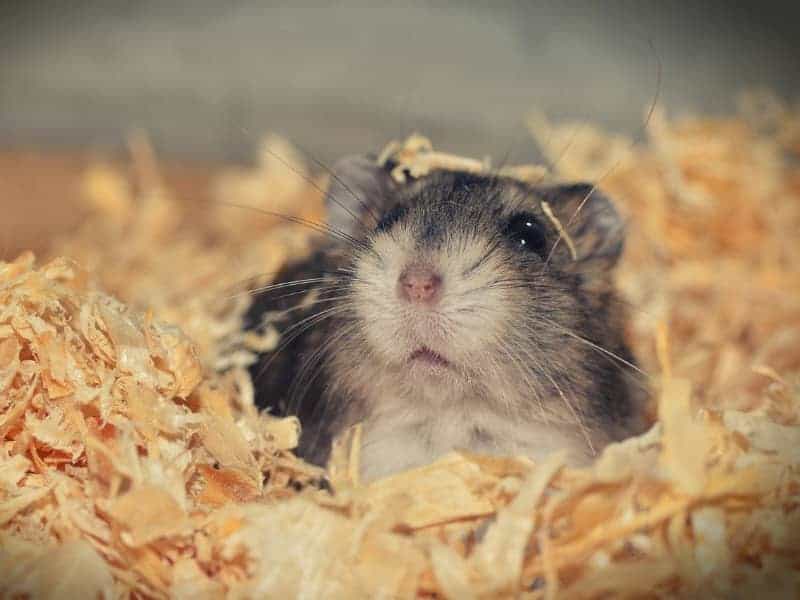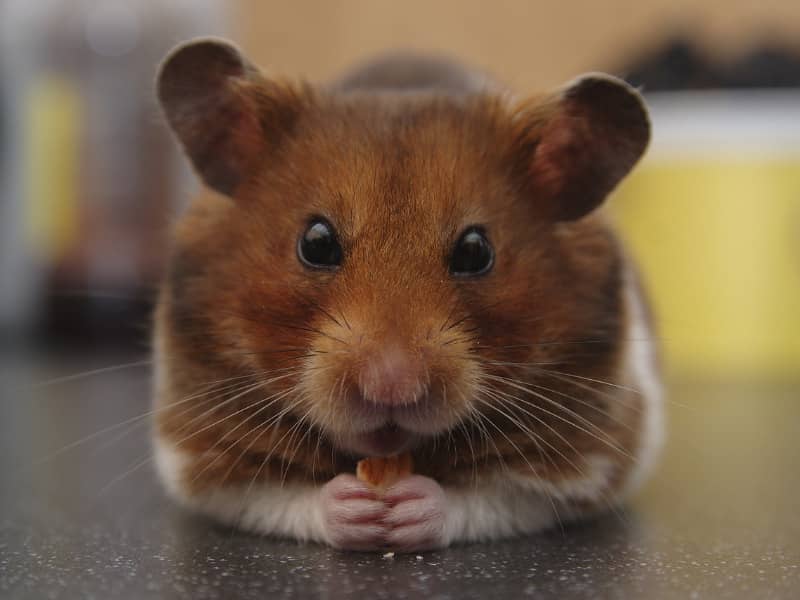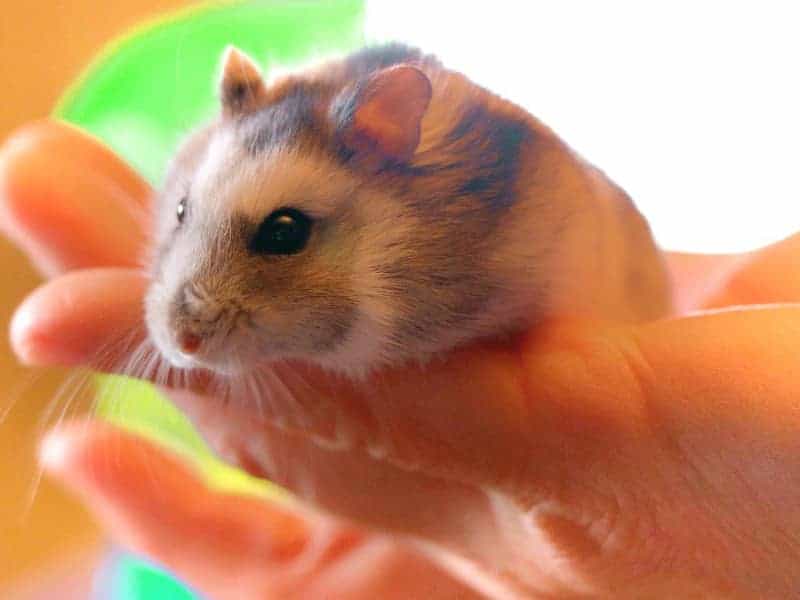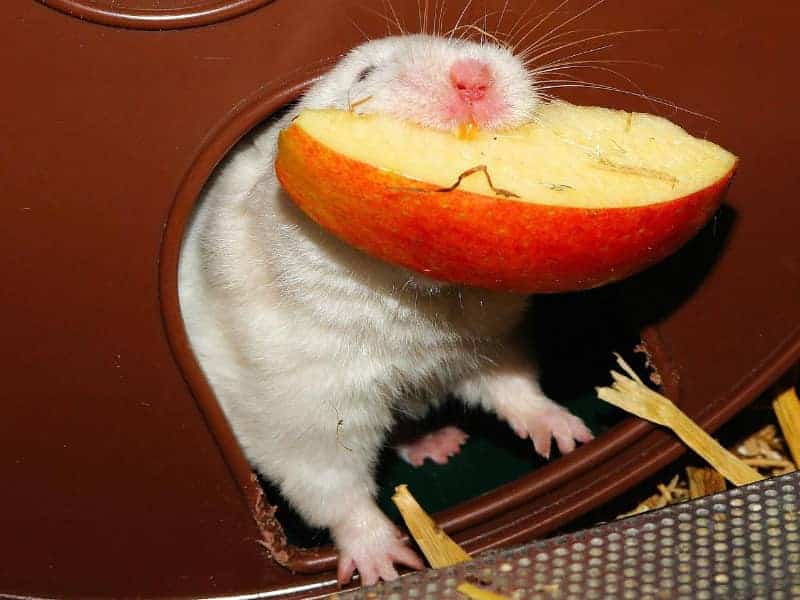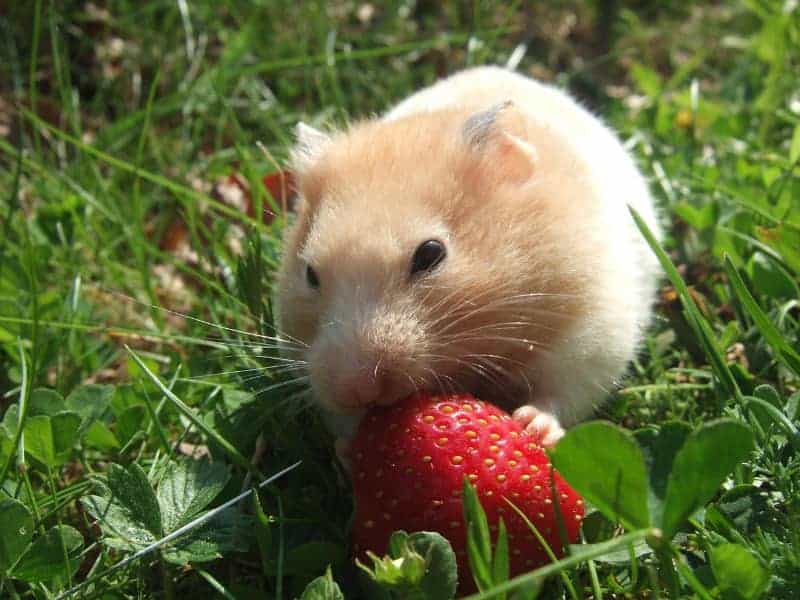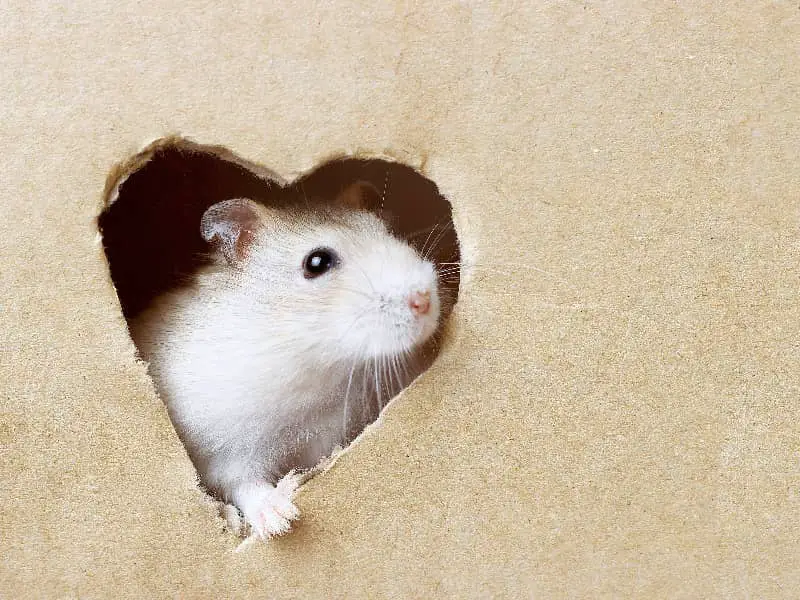
Life expectancy hamster
Life expectancy hamster, this is more than just a number. It is an indicator of the quality of care that the animal receives, and helps you mentally prepare for the time you can spend with your furry friend.
What is the life expectancy for hamsters?
The life expectancy of a hamster varies depending on the species, living conditions and individual health factors. On average, hamsters can live between two and three years, but there are exceptions that live much longer or shorter. Understanding how long a hamster is likely to live is important because it can influence your decisions regarding care, diet and medical care.
It is therefore a good idea to address this issue early on, especially if you plan to get a hamster as a pet. This way you can set realistic expectations and better adjust to your hamster's needs.
Why is it important to know life expectancy?
Knowing your hamster's life expectancy offers several advantages. First of all, it helps you plan for your relationship with the hamster. It's always sad to lose a pet, but if you have an idea of how long your hamster might live, you can better appreciate and value the time.
Another important aspect is planning for health care. An older hamster has different needs than a young animal. Age-related health problems may occur and may require special medical care or lifestyle adjustments.
Overview of the different species of hamsters
There are several species of hamsters kept as pets, and each has its own specific needs and life expectancies. Among the best known are the golden hamster, various dwarf hamster species and the Roborowski hamster.
Each of these species has its own preferences and challenges when it comes to care. Some are more active and require more exercise, while others are more social and get along well with conspecifics. In the following sections, we will look in detail at the life expectancy of these different species.
Life expectancy hamster - factors
How long your hamster will live depends on a variety of factors. It's worth taking a closer look at these to help your hamster live as long and healthy a life as possible.
Genetics
Genetic predisposition plays an important role in the life expectancy of a hamster. A hamster that comes from healthy parents has a better chance of living a longer life. Therefore, it is advisable to pay attention to the origin and health of the parents when buying a hamster.
Genetics also influences susceptibility to certain diseases. For example, some hamster species are more prone to diabetes, while others are more prone to dental problems. Knowing these genetic tendencies can help you take preventive measures.
Nutrition
What your hamster eats has a significant impact on its health and life expectancy. A balanced diet, rich in vitamins and minerals, can extend life span. On the other hand, an unbalanced diet can lead to a number of health problems.
This means not only that you should buy high-quality food, but also that you should supplement the diet with fresh vegetables and possibly animal protein. However, be aware that some foods can be harmful to hamsters.
Living conditions
The conditions in which a hamster lives can also affect its life expectancy. A clean, safe and stimulating environment can have a positive effect on the hamster's health and well-being. This means that the cage should be cleaned regularly and there must be enough opportunities for activity.
Another important consideration is social conditions. While some hamster species are very social and enjoy the company of other hamsters, others prefer a solitary existence. Ignoring these social needs can lead to stress and health problems.
| Factor | Description |
| Genetics | Genetic predisposition can affect susceptibility to certain diseases and overall health. |
| Nutrition | A balanced diet promotes health and can extend life expectancy. |
| Living conditions | A clean and stimulating environment has a positive effect on health and well-being. |
| Health status | Overall health, including the presence of disease, has a direct impact on life expectancy. |
| Social conditions | The social conditions in which the hamster lives can cause or reduce stress, which affects health. |
Life expectancy gold hamster
Golden hamsters are one of the most popular species of hamsters for pet keeping. But how long does a golden hamster actually live? This section will give you a detailed insight into the life expectancy of golden hamsters.
General information
Golden hamsters are known for their lively personality and soft fur. They are usually solitary animals and prefer to live alone. Golden hamsters are nocturnal, which means they sleep most of the day and become active at night.
This behavior is a remnant from their natural habitat, where they primarily forage at night to escape predators. In pet keeping, this means that it is best to give your golden hamster time to move freely in the evening or at night.
Average life
On average, a golden hamster can live two to three years, although there are of course exceptions. The life expectancy depends on various factors such as diet, care and state of health.
It is important to note that golden hamsters can be susceptible to certain diseases such as diabetes. Regular vet visits are therefore essential to keep an eye on the hamster's health and potentially extend its life expectancy.
Particularities in life expectancy
Although the average lifespan of golden hamsters is two to three years, there are cases when they can live longer. Some golden hamsters have even reached the age of four. However, this is the exception rather than the rule.
There are some factors that can positively influence the life expectancy of a golden hamster. For example, a balanced diet rich in vitamins and minerals can contribute to the health of the hamster and thus prolong its life.
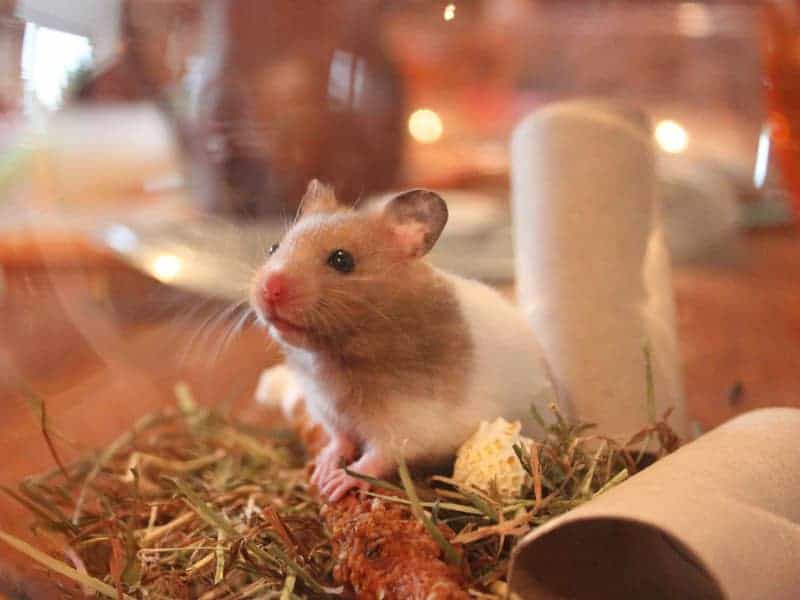
Dwarf hamster life expectancy
Dwarf hamsters are particularly popular with many people because of their small size and cute appearance. But what about the life expectancy of these little rodents? Let's take a closer look.
General information
Dwarf hamsters are small, but full of energy. They can come in a variety of species, such as the Campbell Dwarf Hamster or the Dsungarian Dwarf Hamster. Unlike golden hamsters, some dwarf hamster species are more social and can get along well with conspecifics as long as they are properly socialized.
These small rodents are mostly nocturnal and spend the day in their hiding places. They need plenty of exercise and mental stimulation, so make sure their habitat is varied to avoid boredom.
Average life
The life expectancy of dwarf hamsters can vary depending on the species, but is predominantly between 1.5 and 2.5 years. Some can even live up to 3 years. As with other hamster species, life expectancy depends on several factors, such as the quality of care and diet they receive.
Regular vet visits are also important for dwarf hamsters to identify potential health problems early and take appropriate action.
Differences between the various species of dwarf hamsters
There are several species of dwarf hamsters, and each has its own characteristics when it comes to life expectancy. For example, the Campbell dwarf hamster has an average lifespan of about 2 years, while the Dzungarian dwarf hamster often lives up to 2.5 years.
An important point to keep in mind is that different dwarf hamster species have different needs and susceptibilities to certain diseases. This means that you should know exactly the specific needs of the species you are keeping as a pet in order to maximize its lifespan.
| Hamster species | Average life expectancy (years) | Special features |
| Golden hamster | 2-3 | Susceptible to diabetes |
| Campbell Dwarf Hamster | 1,5-2 | Social, but territorial |
| Dsungarian dwarf hamster | 2-2,5 | Well suited for beginners |
| Russian dwarf hamster | 1,5-2 | Similar to Dzungarian |
| Chinese striped hamster | 2-3 | Needs more vertical space |
| European field hamster | 2-4 | Not common as a pet, very large |
| Romanian hamster | 2-3 | Rarely as a pet, rather in research |
| Turkish hamster | 2-2,5 | Little information, rarely as a pet |
| Roborowski hamster | 3-3,5 | Very active, best suited for experienced holders |
Roborowski hamster life expectancy
Roborowski hamsters are a special species among hamster species. They are known for their high activity and special needs. But what about their life expectancy? Let's take a closer look.
General information
Roborowski hamsters are the smallest and fastest of all hamster species and therefore particularly fascinating. However, they are also one of the most demanding species when it comes to keeping them. They are extremely active, especially at night, and therefore need a lot of space and opportunities for activity.
They are more suitable for experienced hamster owners, as they have special requirements for their living environment and diet. So if you are just entering the world of hamster keeping, this species might be a challenge for you.
Average life
Roborowski hamsters have an average life expectancy of about 3 to 3.5 years. This is a relatively high life expectancy compared to other hamster species. However, as with all pets, careful care and nutrition is critical for a long and healthy life.
An important factor in the longevity of this species of hamster is its activity. Roborowski hamsters are very active by nature and therefore need a lot of exercise to stay healthy.
Particularities in life expectancy
While the life expectancy of Roborowski hamsters is already quite high, there are some factors that can extend it even further. These include a well-designed diet rich in vitamins and minerals, and a stimulating environment that is as close to the natural habitat as possible.
Interestingly, Roborowski hamsters are less prone to many of the health problems that plague other hamster species, such as diabetes. This could be one of the reasons for their comparatively longer life expectancy.
Tips to increase hamster life expectancy
No matter what species of hamster you keep, there are certain things you can do to extend the life of your little friend. Here are some tips that can help you do that.
Healthy diet
A balanced diet is one of the most important factors for a hamster's health and longevity. This means not only that you should buy high-quality hamster food, but also that you should supplement the diet with fresh vegetables and maybe even some animal protein.
However, it is important to know which foods are suitable for hamsters and which are not. For example, some vegetables can cause digestive problems, while others, like carrots or broccoli, are very healthy. A visit to the vet or thorough research can help you create the optimal diet plan for your hamster.
Suitable living conditions
Your hamster's living space should be clean, safe and stimulating. This means that the cage should be cleaned regularly and that you should provide enough activities, such as running wheels, tunnels and other toys.
The size of the cage also plays a role. A cage that is too small can cause stress and health problems. Therefore, make sure to choose a cage that offers enough space and make sure that the hamster has the possibility to retreat if he wants to.
Regular visits to the vet
Even though hamsters are relatively robust animals, they can still become ill. Regular vet visits are therefore essential to identify potential health problems early and take appropriate action. An annual check-up is recommended, and more frequent visits may be appropriate for older hamsters or hamsters with known health problems.
By identifying problems early and treating them appropriately, you can not only improve your hamster's quality of life, but also extend its lifespan.
Conclusion: Life expectancy hamster
The life expectancy of a hamster depends on many factors, including species, genetics, diet, and general living conditions. While some hamster species such as the Roborowski hamster have a relatively high life expectancy, other species such as the Campbell dwarf hamster tend to be on the lower end of the scale. But regardless of the species, you can maximize your hamster's lifespan with careful care and attention.
It is important that you inform yourself well in advance and regularly present your hamster to a veterinarian. A balanced diet and a clean, stimulating environment can also help your furry friend live a long and happy life.
Understanding your hamster's average life expectancy can help you set realistic expectations for the time you will spend with him. And ultimately, the quality of that time you share with your hamster is the most important thing of all.
Author

-
Garden animal - A life with nature
Welcome to my animal blog! My name is Dirk and I am happy to take you on my journey through the fascinating world of animals and gardening.
Born 54 years ago, I have had an insatiable curiosity for the animal world around me since childhood. Although I have moved professionally in other industries, my true passion has always been animals and nature. It is remarkable how a small garden has become such an important part of my life.
Many of my fondest memories are associated with the animals that share our home. Whether it's the curious squirrels that scurry across the trees in the morning, the colorful variety of birds that visit our feeders, or the busy bees and butterflies that pollinate our flowers, every moment with them is invaluable to me.
This blog is my contribution to share my experiences, discoveries and insights with like-minded people. Here I will share stories of unforgettable encounters with animals, give tips on gardening and creating wildlife-friendly habitats, and take you on my journeys through nature.
Thank you so much for being here!
Cordial,
Dirk aka garden animal
Last posts
- 27. February 2024PetsVeganes Hundefutter – Grün und Gesund?
- 18. January 2024ChickensOregano für Hühner
- November 27, 2023HamsterDiurnal hamsters
- November 24, 2023HamsterHamster hammock

